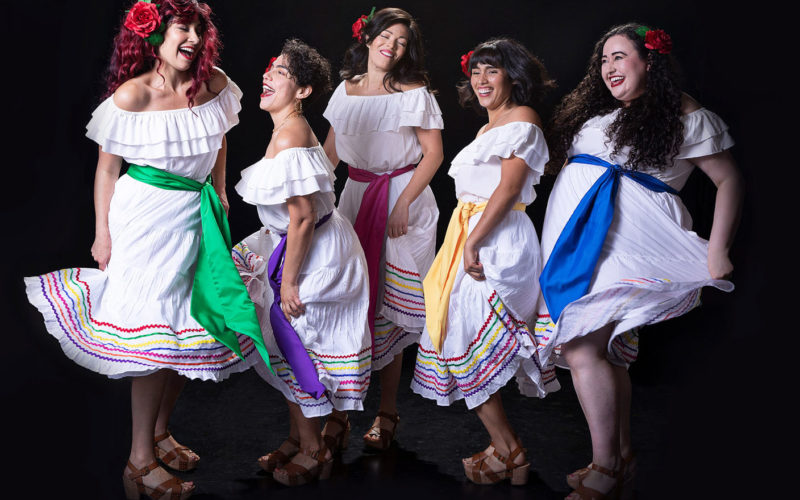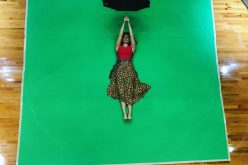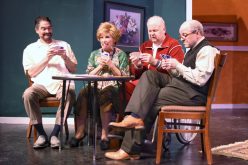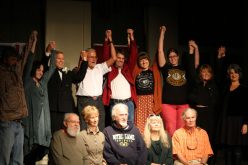LARA JO HIGHTOWER/Special to the Free Weekly
The rehearsal room for TheatreSquared’s latest show, “American Mariachi,” was crackling with talent a week before opening: Mariachi band members tuned up instruments, actors ran lines, and music and laughter rang out in equal parts. It’s a mood that matches the production this team is working on — a sunny-but-sentimental almost-musical that examines deep issues like taking care of ailing parents and the women’s liberation movement of the 1970s in a gentle, accessible — but inspirational — way.
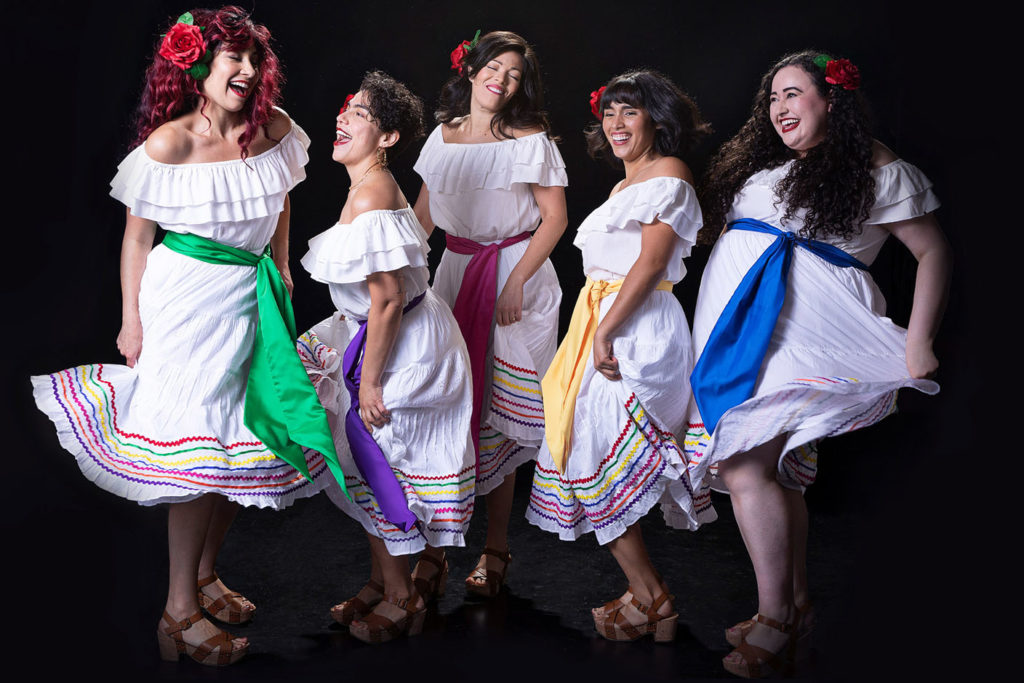
“’American Mariachi’ has everything T2 audiences have always enjoyed about the work done here: a lot of heart and the capacity to find joy despite the challenges life slings our way,” says director Rebecca Rivas, T2 artistic associate and program director for the LatinX Theatre Project. “And it has fantastic music, which is always a plus! Additionally, I think there is a hope that producing this play would be a step toward welcoming audiences unfamiliar with T2’s work in our space, specifically Northwest Arkansas’ Latinx/e community.”
The plot of the play is deceptively simple, with a “let’s put on a show” spirit that hearkens back to the golden age of musicals. Daughter Lucha seeks to form an all-female mariachi band in an attempt to connect with her increasingly unreachable mother, who suffers from dementia. In doing so, she confronts the deeply patriarchal — and sexist — roots within her community.
“José Cruz Gonzalez has a great way of balancing the dark moments in his plays with light,” says Rivas. “The play digs into heavy themes such as family illness and loss, but he offers his characters a release from the pressure using well placed moments of humor. And this rings true because when better to find a way to make a loved one laugh than when they’re in a difficult moment.”
The actors Rivas has cast in these larger-than-life roles are immediately likable and immensely talented, and they share the stage with a true cultural icon: mariachi music. First devised in the rural countryside of Mexico in the 18th century, mariachi music consists of a group of roving musicians playing a variety of instruments that include guitars, violins and trumpets.
Sara Ornelas is a New York-based actor who plays the character of Hortensia in the show. Mariachi music was an important part of her childhood, and she says hearing the first mariachi song played during the initial sing-through of the production was impactful.
“Hearing somebody play that, because I grew up around it and I don’t really hear it anymore — I started crying,” she says. “It just felt so good.”
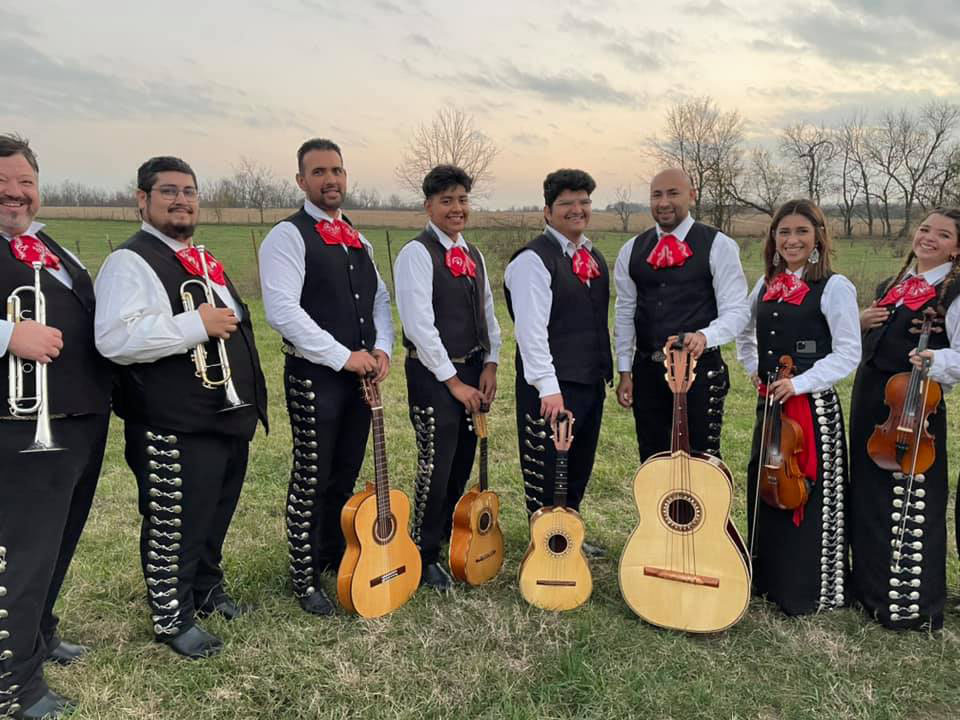
At least part of the emotional punch of the music, she says, is because its very existence is a reminder of the history of colonization the country carries.
“If you really think about it, a lot of those instruments aren’t native to Mexico,” she points out. “That was from Spain’s colonization, bringing those instruments in. We had to try and create our own culture — you have this indigenous culture, and then you have someone coming over and saying, ‘Hey, this is how things need to be.’ I think Mexico did as well as it could, following the mandates of the colonizers and also finding their own music and their own sound.
“We’ve created this music from our bare hands. We have written all of these stories and these drinking songs and these waltzes and polkas — there’s a pride. You hear it, and you know exactly what it is. You may not even know exactly what it’s called, but you know what it is.”
The play also delves into the struggles women were facing in the 1970s to gain equal footing with the men around them. Mariachi bands are, historically, all-male music groups. In the play, Lucha, Hortensia and the women who join them face resistance from the men around them as they struggle to find their own way in the world of mariachi music.
“It’s something that definitely is pervasive throughout all of Latin America, South America, this idea that the man runs the house, that the man is in charge,” says New York-based actor Belén Moyano, who plays Lucha. “But in reality, it’s such a matriarchal society. I always found that very interesting — people from the outside perceive it as men putting their stamp on our culture, like, ‘What I say goes.’ But, in reality, so much of our culture is passed down from mother to daughter and so on and so forth. It’s really interesting to explore.”
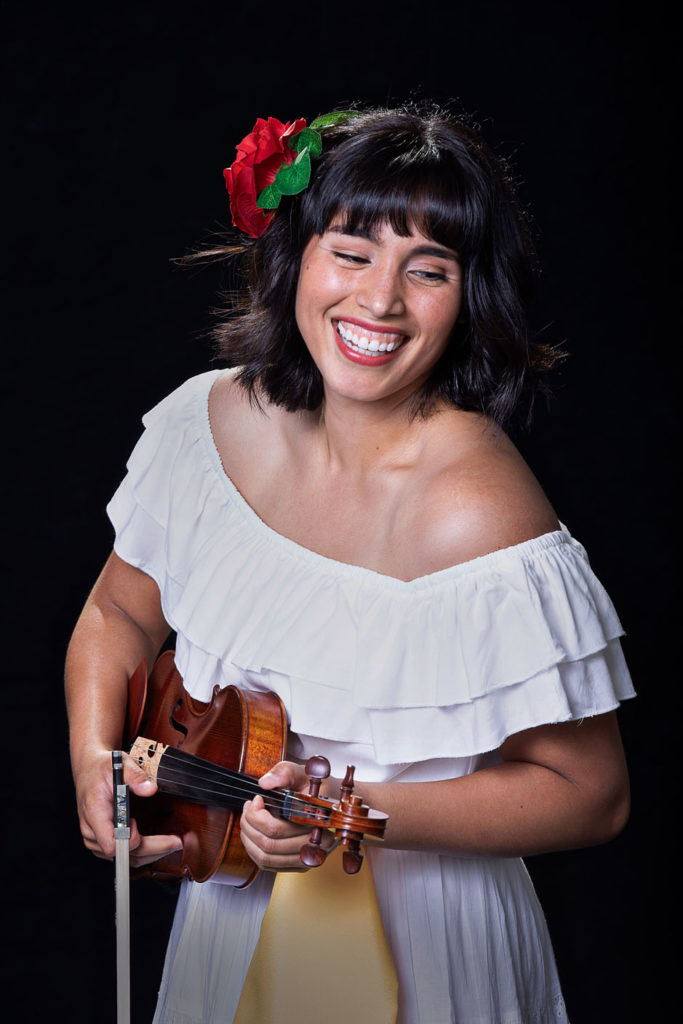
TheatreSquared has long expressed in its mission statement an intent to “broaden access, foster empathy, equity and cohesion”; its “Vision 2023,” created in 2020, adds the hope to “build an inclusive company, amplify new voices in our work and revolutionize access to art.” Both actors express appreciation for seeing these statements brought to fruition in T2’s production.
“What I’m so impressed about TheatreSquared in general is that the director is a woman of color, the set designer, the costume designer, the lighting designer — to have these women who also share in this culture,” says Moyano. “I’ve never worked on a Latinx piece that was this Latinx.”
“I think producing shows like ‘American Mariachi’ is a good first step toward holding the mirror up in an honest way on our stage,” says Rivas. “As our national discourse and demographics shift, it’s important for our theater spaces to reflect and serve the communities they are in. I think T2 has a great opportunity to continue on this path and, hopefully, produce BIPOC stories that move beyond what it’s done before and produce multiple plays that explore a range of BIPOC experiences on our stage. It feels good to watch a story that truthfully parallels your own in all its complexity. I know this production will meet an audience both familiar and unfamiliar with the world this story is written from, but I’m certain everyone will have a wonderful experience.”
FAQ
‘American Mariachi’
WHEN — 7:30 p.m. Tuesday-Saturday and 2 p.m Saturday-Sunday, through Aug. 29
WHERE — TheatreSquared, 477 W. Spring St., Fayetteville
COST — $10-$54
INFO — theatre2.org

